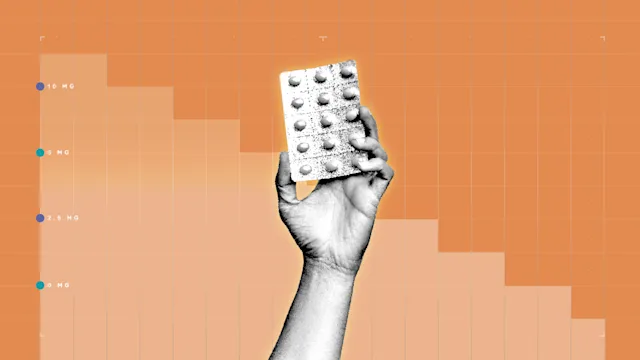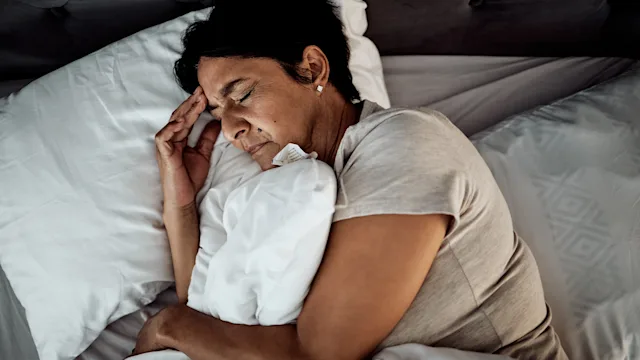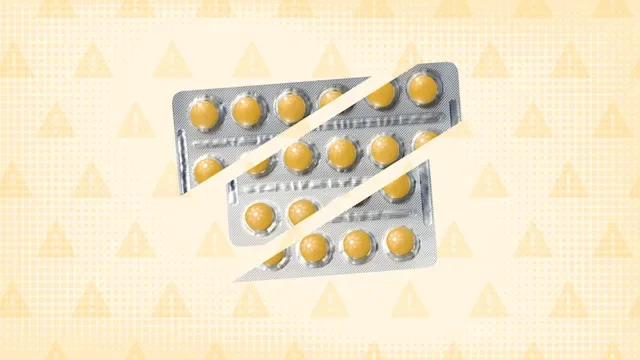Key takeaways:
If you’re having trouble sleeping, medications and supplements are available over the counter and with a prescription. Examples include diphenhydramine (Benadryl, ZzzQuil), melatonin, and zolpidem (Ambien).
Certain sleep aids may affect blood pressure. But the specific effect can depend on the medication. And some sleep aids can interact with blood pressure medications, too.
If you have high blood pressure, you may still be able to take a sleep aid if other options haven’t worked. Your healthcare provider can recommend one that’s safest for you.
Save on related medications
For many of us, getting enough sleep can be a challenge. And trouble sleeping, or insomnia, has been linked to many health issues, including high blood pressure (hypertension).
Many people turn to sleeping pills, either occasionally or regularly, to help them get a good night’s sleep. Common over-the-counter (OTC) options include diphenhydramine (Benadryl, ZZZQuil) and melatonin. Prescription medications, like zolpidem (Ambien), are also available.
Improving your sleep should have a positive impact on your blood pressure. But if sleep aids are part of your regular routine, concerns have emerged that they may be counteracting this potential benefit. And if you’re combining them with blood pressure medications, interactions are also possible.
Search and compare options
Do sleep medications raise your blood pressure?
There’s some research suggesting that taking sleep medications could affect your blood pressure. But overall, the evidence is mixed. And it may depend on which ones you take, and how often you take them.
For example, while infrequent, high blood pressure has been reported as a side effect of Ambien. This is also the case with Lunesta (eszopiclone), a similar prescription sleep medication. However, this side effect probably isn’t very likely. And it’s not necessarily being caused by the medications, either.
A 2019 study looked at older adults who were taking medications to treat high blood pressure. Researchers found that people who regularly took sleep aids ended up taking more blood pressure medications over time than those who didn’t. It’s possible that regular sleep aid use may have contributed to this difference. But more research is needed to confirm.
Is it safe to take sleeping pills if you have high blood pressure?
Generally, yes. But it’s best to check with your provider first.
Most sleep aids don’t commonly raise your blood pressure as a side effect, especially if you only take them short term. But it’s a good idea to check with your healthcare provider or pharmacist before starting a new medication, including OTC products. That’s because interactions with other medications or health conditions are possible.
If your healthcare provider says it’s OK to take a sleep medication, it’s usually best to take it for the shortest amount of time possible. Aside from potential blood pressure effects, some of these medications can have their own risks with long-term use, including addiction and dependence.
Can you take Ambien if you have high blood pressure?
Possibly. As mentioned above, some people have reported high blood pressure while taking Ambien. If you have high blood pressure, it’s best to discuss the risks and benefits of taking Ambien with your healthcare provider.
Can you take a sleep aid with blood pressure medications?
You may be able to take a sleep aid if you’re also taking blood pressure medications. But this can depend on whether the medications will interact.
For example, certain medications used to treat high blood pressure can interact with sleep medications like Ambien. Some examples are diltiazem (Cardizem) and verapamil. They may prevent your liver from breaking down Ambien, which raises the risk of side effects like drowsiness and dizziness. Taking Ambien with clonidine can also make you more drowsy.
And, if you take a beta blocker, like metoprolol (Lopressor, Toprol XL), with a type of sedating antihistamine called diphenhydramine, it can increase the likelihood of metoprolol side effects.
Even melatonin, which most people consider to be a safe sleeping supplement, can interact with a high blood pressure medication called nifedipine (Procardia XL). This interaction won’t make you sleepier, but it may make your blood pressure medication less effective.
Watch out for low blood pressure
For many people taking high blood pressure medications, there’s a risk of low blood pressure, or drops in blood pressure when sitting or standing. This happens more as people get older.
Taking sleep aids along with high blood pressure medications can make this worse and cause blood pressure drops to be more pronounced. This can increase the risk of falls in older adults. Because of this, sleep aids aren’t typically recommended for older people.
These are only a few examples of possible interactions. Make sure your healthcare provider and pharmacist have your current medication list to screen for any interactions ahead of time.
Keep in mind: Some medications for high blood pressure and other heart conditions can interfere with your sleep. For example, beta blockers can cause insomnia and nightmares. And diuretics (water pills) can cause you to wake up at night to use the restroom.
Before you reach for a sleep aid, talk with your provider about whether it may be worth considering adjustments to your blood pressure medications first.
What can you do for better sleep if you have high blood pressure?
Getting a good night’s sleep is an important part of a heart-healthy lifestyle. This usually involves identifying potential contributing factors, improving on your sleep hygiene, and if needed, adding a sleep aid for a short period of time. Here are a few tips:
Review your medication list. As mentioned above, some medications can make it harder to fall or stay asleep. Your provider or pharmacist can help identify potential culprits from your medication list.
Work on your sleep hygiene. Avoid screens (like your phone or TV) at least an hour before bed and limit your caffeine intake to mornings only. Make sure your bedroom is quiet, cool, and dark while you’re trying to sleep. It also helps to establish a consistent bedtime routine that you can follow every night.
Discuss your sleep aid options. Especially if taken short term, the risk of increased blood pressure from sleep aids appears low. So it’s important to choose one that’s compatible with your age, other health conditions, and current medications. Your provider can suggest options that would be safest for you.
The bottom line
Some sleep aids can affect your blood pressure. But more research is needed to understand if there’s a link between regular sleep aid use and overall blood pressure control.
If you already have high blood pressure, it’s best to check with your provider before starting a sleep aid. That’s because there may be an increased risk of side effects, interactions, or other factors to consider.
In either situation, your healthcare provider can help guide you to the best options for a good night’s sleep.

Why trust our experts?



References
American Academy of Sleep Medicine. 2022. Sleep prioritization survey: Sleep aid use.
Aurobindo Pharma Limited. (2022). Zolpidem [package insert]. DailyMed.
Hernández-Aceituno, A., et. al. (2019). Association between sleep characteristics and antihypertensive treatment in older adults. Geriatrics and Gerontology International.
MedlinePlus. (2022). Melatonin.
Mylan Pharmaceuticals. (2022). Eszopiclone [package insert].














